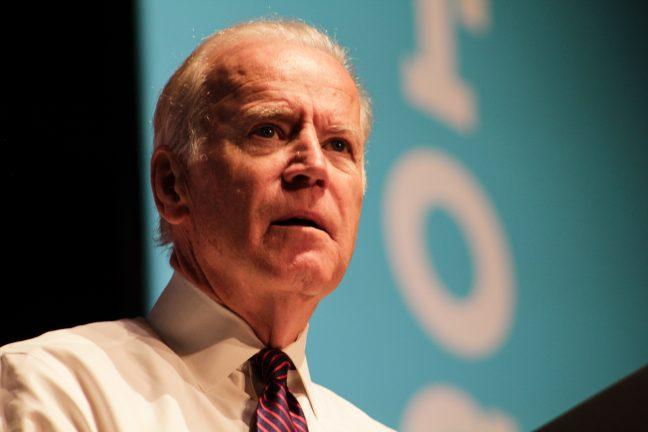[media-credit name=’JEFF SCHORFHEIDE/Herald photo’ align=’alignnone’ width=’648′] [/media-credit]As the concern over energy efficiency becomes more the rule than the exception, the University of Wisconsin is ready to get its hands dirty.
[/media-credit]As the concern over energy efficiency becomes more the rule than the exception, the University of Wisconsin is ready to get its hands dirty.
Launched last spring but taking its roots this fall, the university's "We Conserve" campaign aims to make both UW and the city of Madison more environmentally friendly and energy conscious — and in no small way. The plan calls for a 20 percent reduction in energy consumption by 2010, a goal the program's director, Faramarz Vakili-Zadeh, says is ambitious but more than possible.
According to Vakili-Zadeh, the UW campus is the perfect place for a campaign of this magnitude to materialize.
"First of all, UW-Madison is one of the top universities in the world and one of the biggest universities in the world," he said. "If you look at the standards of admission … we have some of the most intellectual students in the world. And Madison is one of the most progressive cities in the world. We owe it to the world to be a model for the world. If not us, who?"
With this in mind, Vakili-Zadeh said his goal in the campaign is to get everyone involved — to make energy conservation "fashionable."
Posters sporting the We Conserve logo and witty sayings that dot the campus are a major part of the campaign's outreach in a quest for student and faculty attention and involvement.
Vakili-Zadeh called special attention to a sign on the Sewell Social Sciences Building that reads, "It's about Gaia," saying he hopes it inspires students to look up its meaning and invest themselves in the mission.
"Gaia is about the interconnectedness of our natural environment," he said. "And that's exactly what our campaign is all about."
While the project is by no means solely focused on garnering student involvement, Vakili-Zadeh said it is important to have students on board.
"This is about the future, any way you look at this thing," he said. "It's about setting the tone for what the next generation is going to be like. It's important for [students] to know they can maintain an equilibrium with the rest of the world."
How it started
Energy conservation is nothing new for UW.
In fact, the university is a member of the Wisconsin Energy Initiative, established in 1992, and received the U.S. Energy Association's 2004 Energy Leadership Public Service Award for its efforts toward increasing energy efficiency on campus.
According to Vakili-Zadeh, those efforts led to the installation of more than 200,000 high-efficiency fluorescent lights, nearly 9,000 occupancy sensors, thousands of high-efficiency motors and numerous other improvements.
But the university is not stopping there.
This past April, Gov. Jim Doyle issued an executive order addressing the energy conservation needs of the state, calling for efficiency goals to be set and for state facilities to pursue energy analyses and demonstration projects. UW responded.
In line with the governor's order, UW Chancellor John Wiley announced the development of the We Conserve campaign, asking for support from the campus' deans and directors.
Vakili-Zadeh, who is also the associate director of Physical Plant at UW, stepped up as the program's leader and began setting goals and gathering input.
Interest and support was not lacking from the campus community during the initial stages of the project's development, Vakili-Zadeh said, adding that student groups and school officials have been very receptive.
WISPIRG, a student-led environmental group on campus, took note of the university's plan and came to the table with ideas of their own.
"We've been working with the administration for the past three semesters," said Josh Clements, a WISPIRG executive board member and fifth-year senior. "We looked at what other campuses have been doing and brought our research to [Vakili-Zadeh]. He has incorporated most of our ideas into the program."
Clements stressed education programs attached to the We Conserve campaign are particularly important. Programs and competitions in dorms, panels and forums on energy-related topics and a campus-wide Earth Day event are some of the many functions that have already happened or are in the works for the campaign.
While WISPIRG is involved in many environment awareness projects at UW, Clements noted the group's involvement is particularly significant for We Conserve because it lends a student voice to the campaign.
"[A student voice] is important because students need to see this isn't a top-down approach," he said. "It's not just the administration's responsibility to implement this."
Where it is headed
Despite the project's infancy, significant progress has already been made and the program's directors show no signs of slowing down.
Some of the most notable efforts thus far include reconditioning Steenbock Library, updating buildings with efficient lighting, fume hood upgrades, power management tools for computers and commencement of laboratory-efficiency review programs.
"If right now we turned off all of the lights and all of the computers on campus, the 20 percent [reduction goal] would not be reached," Vakili-Zadeh said, adding that while targeting lighting and computer usage will be "quite instrumental" in the campaign, We Conserve will be tackling larger energy-consuming facilities and practices.
Vakili-Zadeh pointed to a recent audit of the engineering building's energy consumption as an example of where We Conserve is looking to tap into big savings.
"We found that energy consumption [at the engineering building] can be reduced by over 40 percent, which translates into $750,000 in savings a year," he said, adding the capital investment required for the project is roughly $2 million. "It is going to happen."
According to Alan Fish, associate vice chancellor for facilities, planning and management at UW, the most successful approach will be multifaceted.
"We're looking at every level of energy use on campus," he said. "There are things like recycling, being smart about transportation and turning off lights when you're not in the room — those are obvious and have been talked about for the past 20 years. We're looking at things we can do behind the scenes, finding where we can make the biggest change for the smallest investment."
Fish also said while a conscious effort by people to reduce their energy consumption is important, many of the efforts being made for the campaign do not require people to change their everyday routines.
Installing storm windows, insulating old buildings and updating roofs to be more efficient are some of the many smaller projects that could add up to a lot in savings, Fish said, if the funding is there.
"The problem is not that we don't know what to do — we know exactly what to do," he said. "We need to make decision makers understand if they want to save money and protect the environment, we need that up-front money. The next biennial budget will determine how far and how fast we can go."
Fish acknowledged Doyle's executive order last spring as an "important fork in the road" in regard to funding for energy conservation projects, saying support from those who assign resources is vital for the success of We Conserve.
According to Matt Canter, a spokesperson for the governor, state government is aware of the funding issues surrounding energy conservation and has not been shy about investing in programs of this nature.
Nearly $80 million has been invested toward the state's goal to reduce energy consumption and rely more on renewable resources, Canter said, adding that with the price of fuel rising, it is important to focus on ways to save taxpayer dollars through efficiency projects.
And according to Canter, UW plays a large role in the potential success of energy conservation in the state.
"The university has research capacity unsurpassed by any institution in the state," he said. "[UW] can lead by example and develop new technologies that can make renewable energy more affordable and more accessible."
The big picture
For a campus as large as UW, the importance of conserving energy goes unsaid.
There are 27,000 computers on campus. More than 3,000 fully equipped laboratories operate every day. Electric-motor-driven pieces of equipment on campus number more than 10,000.
The energy used by these and countless other functions of the campus total enough to sustain more than 30,000 homes.
Additionally, while the university has added just seven percent more square feet of building space since 2001, UW's energy costs for the last fiscal year were 77 percent greater than in 2001.
It is no secret that this amount of energy consumption comes at a high price for the university and the environment.
Vakili-Zadeh stressed how much We Conserve could lessen the budgetary strain of the university, but also noted money is far from the only important factor in the equation.
"A 20 percent reduction [of energy consumption] means $10 million savings annually," he said. "And that's a lot of money. But money is not the point. It's the right thing to do, in terms of future sustainability, geopolitical issues, social justice, you name it."
Lewis Gilbert, associate director at the Nelson Institute for Environmental Studies at UW, highlighted the importance of teaching students energy conservation so they might take it with them after leaving campus.
"You teach your kids to recycle by recycling in your home," he said. "We teach in classrooms, but we also teach like parents — by example. It's about doing what can be done and what should be done."
Gilbert added the past two to three years have seen a real shift in the appreciation of human impact on the climate, and UW especially has proven to have environmental consciousness deeply embedded in the culture of the campus.
For that reason, he said, UW is the perfect turf for We Conserve.
"This is the ideal place to be doing this," he said. "If we can't do it successfully here where the consciousness of interactions of humans and the environment is much more widespread, it would be difficult to do it in other places."
Vakili-Zadeh expressed similar sentiments, adding the campaign's success depends on the campus community taking energy conservation seriously — in their own everyday lives and by using political power to influence those who assign resources and funding.
Asked if the goal of We Conserve — 20 percent by 2010 — is achievable, Vakili-Zadeh showed no hesitation: "It's not a question of 'if,'" he said. "When 2010 comes, I'll be celebrating how we reached this goal and setting new ones."















